#heim my beloved
Text
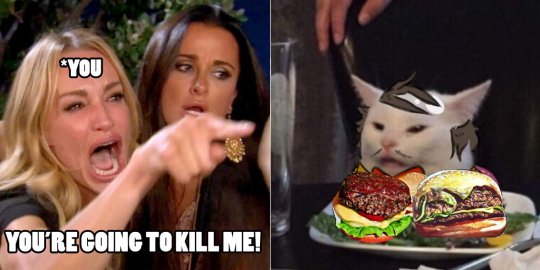
Heimborger
#house hunted#house hunted game#house hunted 2#heim baile#maison talo#uncanny valley#uncanny valley game#uncanny valley meme#john doe#john doe meme#john doe game#house hunted meme#house hunted visual novel#heim my beloved
228 notes
·
View notes
Text


161 notes
·
View notes
Text
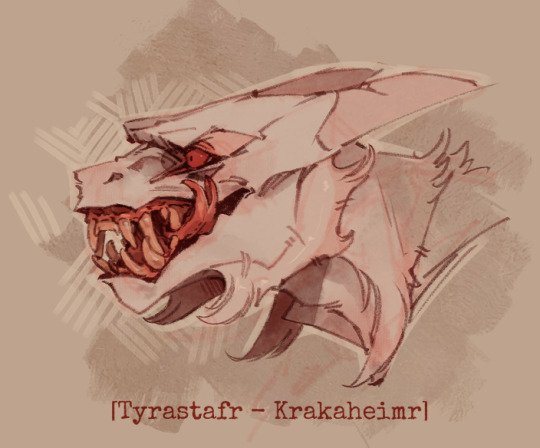
drawing one of my old characters again!!
14 notes
·
View notes
Text
*unholy screeching* baseball.
#priide monologues#i do not care for sports but baseball is the beloved and my bOYS WON LAST NIGHT AHHHH#shoutout to garica heim montgomery and jankowski yall played ball fr#baseball
0 notes
Photo

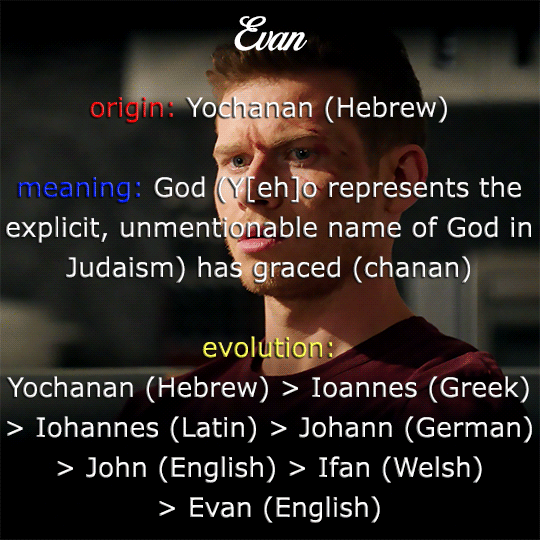

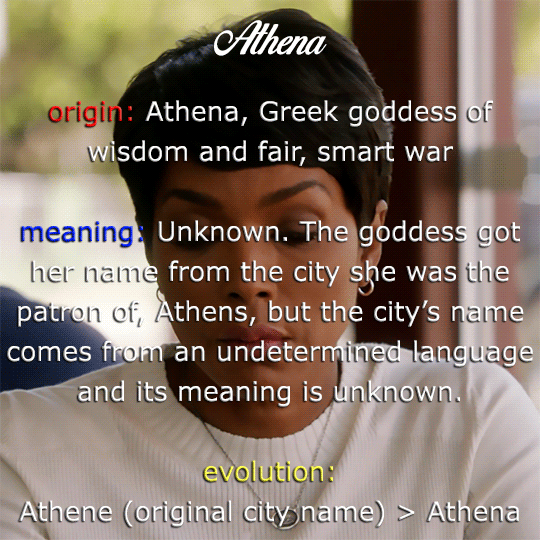
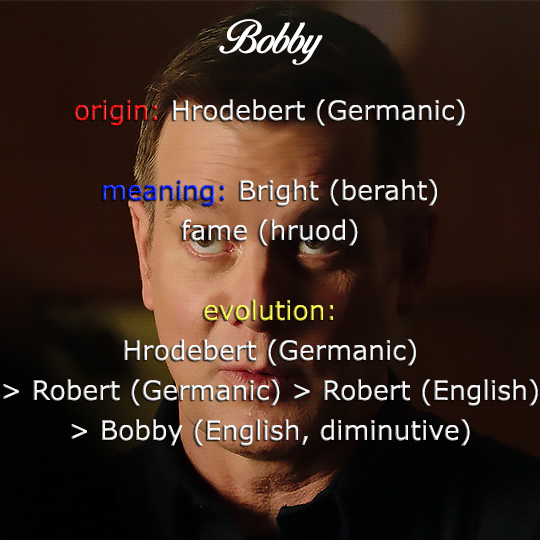
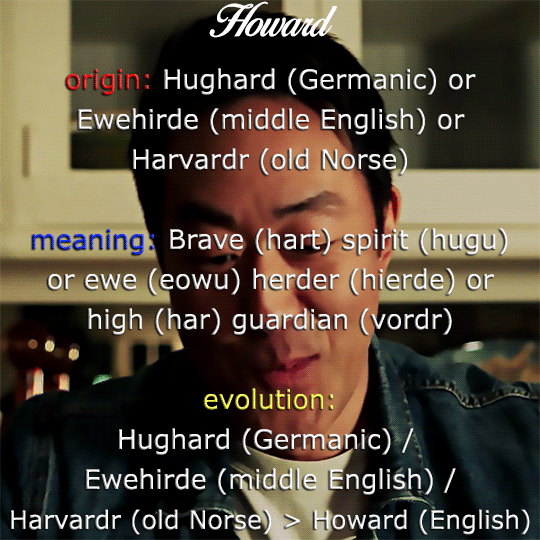



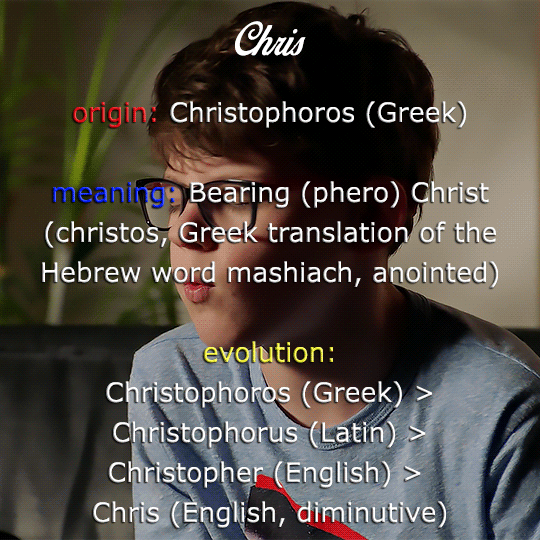
I’m making this post at the request of the lovely @siflovesbuddie. Thank you for sending me your ask, and for your interest in my own thoughts! xoxox
Resource post with names info for all the notable 911 characters, compiled by the fandom’s resident name geek (slightly better than your average baby name site, which doesn’t give a damn about accuracy or about respecting the original cultures).
Gif makers and fic writers, please feel free to use this! If you do, credit or a reblog would be nice.
Also for anyone into enjoying different cultures and languages!
Here’s an open invitation if anyone wants to consult me on any other character’s name.
Under the cut: the info for all the characters in text, including a little more detail and explanation for the (giffed) main characters

Michael
origin: Mikhael (Hebrew). meaning: Who (mi) is like (ka) God (el)? evolution: Mikhael (Hebrew) > Michael (Greek) > Michael (Latin) > Michael (English)
David
origin: David (Hebrew). meaning: Beloved (dod, spelled in Hebrew exactly like David). evolution: David (Hebrew) > David (Greek) > David (Latin) > David (English)
May
origin: Maia (Latin). meaning: The name is derived from the Roman month, which is itself named after Maia, a Roman goddess of spring. evolution: Maia (Latin) > May (English)
Harry
origin: Heimirich (Germanic). meaning: Home (heim) ruler (rich). evolution: Heimirich (Germanic) > Heinrich (Germanic) > Henri (French) > Harry (middle English)
Josh
origin: Yehoshua (Hebrew). meaning: God (Yeho and its abbreviation Yo represent the explicit, unmentionable name of God in Judaism), save (shua)! evolution: Yehoshua (Hebrew) > Iosue (Latin) > Joshua (English) > Josh (English, short form)
Denny
origin: Dionysos (Greek). meaning: God (dios) from Nysa (the region of Greece that the god of wine and dance Dionysos was born in). evolution: Dionysos (Greek) > Dionysius (Latin) > Denis (French) > Dennis (English) > Denny (English, diminutive)
Linda
origin: Lintha (Germanic). meaning: Soft (linth). Nowadays sometimes merged with the Spanish word for beautiful (linda). evolution: Lintha (Germanic) > Linda (Germanic) > Linda (English)
Sue
origin: Shoshana (Hebrew). meaning: Lily (shoshan. Sometimes conflated with rose). evolution: Shoshana (Hebrew) > Sousanna (Greek) > Susanna (Latin) > Susan (English) > Sue (English, short form)
Albert
origin: Adalbert (Germanic). meaning: Noble (adal) and bright (beraht). evolution: Adalbert (Germanic) > Albert (Germanic) > Albert (English)
Ravi
origin: Ravi (Sanskrit). meaning: Sun (ravi). evolution: Ravi (Sanskrit) > Ravi (Hindi, Tamil, Bengali, Gujarati, Nepali and more).
Abby
origin: Avigail (Hebrew). meaning: My father (avi)'s joy (gil). evolution: Avigail (Hebrew) > Abigail (Latin) > Abigail (English) > Abby (English, diminutive)
Carla
origin: Karl (Germanic). meaning: Man (karl. Sometimes used specifically in the context of ‘free man’). evolution: Karl (Germanic) > Carl (German) > Carl (English) > Carla (English, feminine)
Ana
origin: Chana (Hebrew). meaning: Grace (chen). evolution: Chana (Hebrew) > Anna (Greek) > Anna (Latin) > Ana (Spanish)
Eva
origin: Chava (Hebrew). meaning: Living (chai. The biblical character of Chava is described as ‘em kol chai,’ the mother of all who are living). evolution: Chava (Hebrew) > Eua (Greek) > Eva (Latin) > Eva (English)
Lou
origin: Hludwig (Germanic). meaning: Famous (Hlut) in battle (wig). evolution: Hludwig (Germanic) > Ludwig (Germanic) > Ludovicus (Latin) > Louis (French) > Louis (English) > Lou (English, short form)
Shannon
origin: Sionainn (Irish). meaning: Old (sen). It derives from the name of the longest river in Ireland. evolution: Sionainn (Irish) > Shannon (Irish) > Shannon (English)
Isabel
origin: Elisheva (Hebrew). meaning: My God (eli) is perfection (sheva is the Hebrew word for seven, a number representing perfection in Jewish tradition) or My God (eli)'s oath (shvua). evolution: Elisheva (Hebrew) > Elisabet (Greek) > Elisabeth (Latin) > Isabel (middle Occitan) > Isabel (Spanish)
Ramón
origin: Raginmund (Germanic). meaning: Decision (regin) of protection (mund). evolution: Raginmund (Germanic) > Raimund (Germanic) > Ramon (Catalan) > Ramón (Spanish)
Josephina
origin: Yoseph (Hebrew). meaning: He will add (yosiph. From the biblical language of oath taking: ‘So will God do to me and so he will add if I...’). evolution: Yoseph (Hebrew) > Ioseph (Greek) > Ioseph (Latin) > Joseph (French) > Joséphine (French, feminine) > Josephina (English)
Helena
origin: Helene (Greek). meaning: Torch (helene) or possibly derived from moon (selene). evolution: Helene (Greek) > Helena (Latin) > Helena (English)
Lucy
origin: Lucius (Latin). meaning: Light (lux). evolution: Lucius (Latin) > Lucia (Latin, feminine) > Lucie (French) > Lucy (English)
Toni
origin: Antonius (Latin). meaning: The name derives from Etruscan and its meaning is unknown. The first notable historical figure to carry the name was Marcus Antonius (Mark Anthony), bringing many to link the meaning to him, or incorrectly to the Greek word for flower (anthos). evolution: Antonius (Latin) > Antonia (Latin, feminine) > Antonia (English) > Toni (English, diminutive)
Nia
origin: Nia (Swahili). meaning: Purpose, aim. evolution: Nia (Swahili) > Nia (English)
Beatrice
origin: Viator (Latin). meaning: Voyager, traveler. evolution: Viator (Latin) > Viatrix (Latin, feminine) > Beatrix (Latin) > Beatrice (Italian) > Beatrice (English)
Samuel
origin: Shmuel (Hebrew). meaning: His name (shmo) is God (el). evolution: Shmuel (Hebrew) > Samouel (Greek) > Samuhel (Latin) > Samuel (English)
Doug
origin: Dùbhghlas (Gaelic). meaning: Dark (dubh) river (glais). evolution: Dùbhghlas (Gaelic) > Dùghlas (Gaelic) > Douglas (English) > Doug (English, short form)
Ali
origin: Adalheidis (Germanic) or Alexandros (Greek). meaning: There are two names whose English diminutives are Ali. Adalheidis means noble (adal) kind (heit). Alexandros means defender (alexo) of men (andros). evolution: Adalheidis (Germanic) > Adelais (Latin) > Aalis (middle French) > Alison (French, diminutive) > Alison (English) > Ali (English, diminutive) or Adalheidis (Germanic) > Adelais (Latin) > Aalis (middle French) > Alice (French) > Alice (English) > Ali (English, diminutive) or Alexandros (Greek) > Alexandra (Greek, feminine) > Alexandra (English) > Ali (English, diminutive)
Daniel
origin: Daniel (Hebrew). meaning: God (el) judges me (dani). evolution: Daniel (Hebrew) > Daniel (Greek) > Daniel (Latin) > Daniel (English)
Lena
origin: Helene (Greek) or the town of Migdal (Hebrew). meaning: There are two names whose short form is Lena. Helene means torch (helene) or is possibly from the Greek word for moon (selene). Magdalena refers to a woman who is from Magdala, the Greek pronunciation for Migdal, the town in ancient Israel mentioned in the Bible. The town’s name means tower in Hebrew. evolution: Helene (Greek) > Elena (middle Slavic) > Yelena (Russian) > Lena (Russian, short form) or Migdal (Hebrew) > Magdala (Greek) > Magdalene (Greek) > Magdalena (Latin) > Magdalena (English) > Magdalena (English, short form)
Noah
origin: Noach (Hebrew). meaning: Comfortable, pleasant (noach) or resting (nach). evolution: Noach (Hebrew) > Noah (German) > Noah (English)
Taylor
origin: Taylor (English). meaning: Tailor (from the Italian verb ‘taliare,’ to cut). evolution: Taylor (English)
Jeffrey
origin: Gautfrid (Germanic). meaning: While ‘frid’ refers to peace (fridu), ‘gau’ might derive from the word territory (gawi) or from gautaz, a reference to the Germanic tribe of Geat. evolution: Gautfrid (Germanic) > Geoffroi (middle French) > Geoffrey (English) > Jeffrey (English)
Elaine
origin: Helene (Greek). meaning: Torch (helene) or possibly from the Greek word for moon (selene). evolution: Helene (Greek) > Helena (Latin) > Hélène (French) > Elaine (English)
Jonah
origin: Yona (Hebrew). meaning: Dove (yona). evolution: Yona (Hebrew) > Jonah (English)

Evan
origin: Yochanan (Hebrew). meaning: God (Yeho and its abbreviation Yo represent the explicit, unmentionable name of God in Judaism) has graced (chanan). evolution: Yochanan (Hebrew) > Ioannes (Greek) > Iohannes (Latin) > Johann (German) > Johan (middle English) > John (English) > Ifan (Welsh) > Evan (English)
Eddie
origin: Eadmund (old English). meaning: Rich, wealthy (ead) protection (mund). evolution: Eadmund (old English) > Edmund (English) > Edmundo (Spanish and Portuguese) > Eddie (English, diminutive)
Athena
origin: Athena, Greek goddess of wisdom and fair, smart, brave war. meaning: Unknown. The goddess got her name from the city she was a patron of, Athens, but the city’s name comes from an undetermined language (likely an unknown language spoken in Greece before Ancient Greek even developed), so its meaning is also a mystery. Most people therefore associate the meaning of the name with the qualities the goddess represented. evolution: Athene (the name of the city in Ancient times) > Athena
Bobby
origin: Hrodebert (Germanic). meaning: Bright (beraht) fame (hruod). evolution: Hrodebert (Germanic) > Robert (Germanic) > Robert (English) > Bobby (English, diminutive)
Howard
origin: There are three names that have entered modern English as Howard, Hughard (Germanic), Ewehirde (middle English) and Harvardr (old Norse), making any of these likely to be considered the origin of the name. meaning: Brave, hardy (hart) spirit (hugu) or ewe (eowu) herder (hierde) or high (har) guardian (vordr). evolution: Hughard (Germanic) / Ewehirde (middle English) / Harvardr (old Norse) > Howard (English)
Maddie
origin: The town of Migdal (Hebrew) or Mahthilt (Germanic). meaning: There are two names whose English diminutives are Maddie. Magdalene refers to a woman who is from Magdala, the Greek pronunciation for Migdal, the town in ancient Israel mentioned in the Bible. The town’s name means tower in Hebrew. Madison means Maud’s son, Maud originating in a name that means might (maht) in battle (hilt). evolution: Migdal (Hebrew) > Magdala (Greek) > Magdalene (Greek) > Madeleine (French) > Madeline (English) > Maddie (English, diminutive) or Mahthilt (Germanic) > Matilda (English) > Maud (French) > Madison (English) > Maddie (English, diminutive)
Hen
origin: Heimirich (Germanic). meaning: Home (heim) ruler (rich). evolution: Heimirich (Germanic) > Heinrich (Germanic) > Henri (French) > Henriette (French, feminine) > Henrietta (English) > Hen (English, diminutive)
Karen
origin: Aikaterine (Greek). meaning: There are two Greek names it might have been influenced by. Hekaterine, meaning each of the two (hekateros) or Hekate meaning far off (hekas). Either way, during the early Christian era, the name's spelling was changed, adding an ‘h’ after the ‘t’ and tying it to the Greek word for pure (katharos). evolution: Aikaterine (Greek) > Katerina (Latin) > Katharina (Danish) > Karen (Danish) > Karen (English)
Chris
origin: Christophoros (Greek). meaning: Bearing (phero) Christ (christos, meaning anointed, Greek translation of the Hebrew word ‘mashiach’ which has entered English as ‘messiah’). evolution: Christophoros (Greek) > Christophorus (Latin) > Christopher (English) > Chris (English, diminutive)
#911edit#911 gifs#evan buckley#eddie diaz#hen wilson#christopher diaz#chimney han#bobby nash#athena grant#karen wilson#maddie buckley#mbg#mg#911 edit#may grant#ravi panikkar#911onabc#911 on abc#911abc#911 abc
307 notes
·
View notes
Text
AAAAAAAAAAAAAAAAAAAAAAAAAAAAAAAAA
THAT ENDING WAS SOOOO GOOD
I LOVE LOVE LOVE THAT SETSUNA AND RIBBONS DOWNGRADE FOR THE FINAL BATTLE
It felt so much like '79 Gundam in that sense. Coming out of this series I absolutely get the hype around Setsuna and see why he's such a beloved protagonist. His character growth is honestly A+++
I feel like with him, they really managed to capture the vibe of inexpressive autistic person without feeling like a bad stereotype.
I like how they wrapped up everyone's stories, save for a few. Andrei still sucks, and I'd prefer to Soma to be the dominant person over Marie. Billy still sucks, from the beginning of s2 you could tell his entire arc was gonna be him on some incel shit.
I also came into S2 as a Marina-enjoyer but I can kiiiinda understand some criticisms with her in this season. She really felt... tacked on. Which is a shame because I was so excited to see where she'd go at the start of the season but then as it went on I was kinda over it every time her and the kids were on screen.
That said, every other character was fantastic and felt like they had great payoff. I'm actually so happy that Kati and Patrick got married and that Graham was able to move past his whole... thing. I think Louise Halevy is really one of the MVPs of this fucking series though. I love the shit out of any character that can make me feel the same way I felt about Sochie Heim. I was expecting to be more upset with her just killing Nena (I had that spoiled for me) but I think it was v well done, 00 manages to never feel like it's just tossing characters aside, deaths in this series felt a lot more meaningful than most of the deaths in UC, imo.
With 00 done now, I'm probably gonna watch the movie tomorrow- and I think after that I'm gonna write up my Gundam series tierlist.
Had to do away with numbered rankings because there's a few series I don't think I could physically place above one another lol
4 notes
·
View notes
Note
BABY HEIMDALL AND BALDUR 😭it is so cute
i feel like Heim loved his baby brother, in a big bro way ofc (meaning he still picks on him but would break someone's neck if a stranger did it)
I mean Baldur was the most beloved of the gods, so naturally Heimdall loved his brother too. But definitely in a "Only *I* can bully my baby brother" kind of way. (Nevermind that Baldur bullies him back tenfold and gets away with it very easily).
Heimdall loves his baby brother even though he also wants to punt the little boy into the next realm.
#god of war ragnarok#god of war#baldur gow#Heimdall gow#They're brothers your honour#I'll stand by that no matter what anyone says
43 notes
·
View notes
Text
Updated Request Rules
DISCLAIMER: I DO NOT SUPPORT ALL OF THE TOPICS I WRITE ABOUT (Serial Killers, Yandere, etc)!!
Requesting:
Please be a little specific! "[X] x S/O" is just too vague, and leaves nothing to the imagination. Even a simple adjective ((Yandere [X], tall s/o, anything that's not against the rules)) is good enough!
Characters I'll write for :
Wally Darling, Howdy Pillar, and Barnaby B. Beagle
Creepypasta List Link :
South Park List Link(aged up + slightly different personalities bc that's what happens when people grow up and it's mad weird to see aged up sp content and like, everything about the characters is the exact same.) :
Danganronpa list link :
Jasper (Steven Universe)
Blue Diamond (Steven Universe)
Spaceman Benny (Lego Movie, SFW only)
Manray (the Spongebob villain with huge tits)
Rob (The Amazing World of Gumball, aged up)
Jack Box (the Jack in the Box mascot)
Spamton G. Spamton (my silly beloved!!)
Dr. Two Brains (Wordgirl)
John Doe (Mortisfox)
Heim (House Hunted 2/mortisfox)
Bob Velseb (Spooky Month)
2D (Gorillaz)
Flippy (Happy Tree Friends)
Rick Sanchez (C-137, J-19 Zeta 7, and Prime - Rick and Morty)
Topics I'll write about :
The basic topics everyone writes about
Yanderes
Smut/Lemon/NSFW (kink friendly)
Dub-con (will have a tw)
Topics I WON'T write about :
Pedophilia
Canon x Canon (except for polyamory)
Canon x OC
Anything proship or comship
#requests#requests open#creepypasta x reader#steven universe x reader#danganronpa x reader#wally darling x reader#yandere x you#barnaby beagle#howdy pillar#barnaby x reader#howdy x reader#x reader#south park x reader
41 notes
·
View notes
Text
urge to return to my beloved (avenue q pfp) is strong but also i really wanna keep heim as my pfp cause maloki heimdall is silly
3 notes
·
View notes
Note
// Scopophobia warning just in case :3
Heim is twisted from Home btw ! and Amato is twisted from Wally ) , Heim's name means ' Home ' , Amato's means ' Beloved ' - their parents let Heim name Amato placing down their playlists
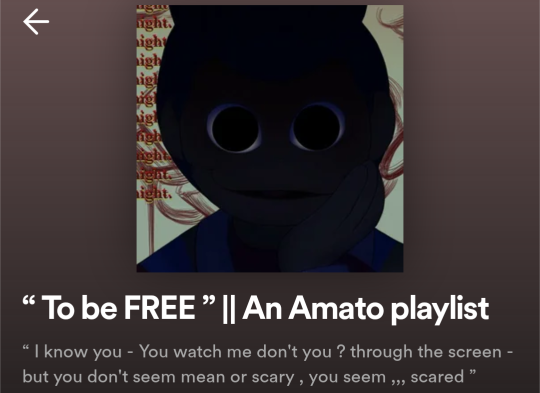

ALL OF UR OCS ARE SO S TIER WHY ARE THEY ALL SO COOL HELLO?!?!!!!?!!!!!?! AAAAAAAAAAAAAAAAAAAAAAAA WELCOME HOME IS SO COOL I AM BANGING MY EHAD AGAINST A WALL
2 notes
·
View notes
Text
(An au for my main ship Kradall :3. Warning : Grief and character death )
(English is not my first language. if there’s any error in this fic. I’m sorry 😢 )
After long years of losing Kratos from Ragnarok War (Around 10+ years ). Heimdall decided to stay alone at his husband house in Midgard. Atreus and his beloved, Angrboda. They moved to live in Jotunheim. They also bring mimir with them.
One day, Atreus came to visit heimdall.
He would come to visit his old house every years. Cleaning and fixing what would be broken. And he also look after heimdall after losing his love. (+ visit his dogs too)
This time atreus came alone.
And fully grew up as an adult man with giant genes.
Heimdall knew atreus will come.
"Your true owner is coming, girls." He said with spike and svanna.
Those dogs were aged than before but still healthy. Spike turn her head around, Trying to looking for an adult giant who was coming to visit them.
"I know, I should say hi"
Animal's emotion is easier to read and understand. not like from human. Heimdall felt svanna's thought. So he answered her back.
Then he came. Loki of Jotun.
First he noticed was his height.
He's..so tall, taller than him and his father.
Then his eyes.
An icy blue which he got from his mother. Faye. But that was not a point.
Those shape of atreus's nose and eyes.
It reminded him.
Kratos.
"Hi" Deep and loud voice call him from his thought. Heimdall left from those dogs and open a gate, let atreus came in.
"Hi"
The Jotun told him to wait in the house. He would come to say hello to his dogs and went back to talking with him soon.
After that, Atreus came back to his old house.
They look like the same as he left, after his father died.
"How are you, Heim?"
The god of foresight turn his face from a book he was reading. with no any emotions on his face " Fine...as usual"
"There's no much thing for this old god to do with" He said then move to table that stand at the middle of the house.
"Won't you try to chop wood? My father liked to do it when he had no important thing to deal with"
The God of foresight sat on an old chair. "That's not count" because that was what he had to do it for every winters.
"How are mimr and your wife?" Mentioning to atreus's wife. A bright smile show off.
"Mimir is fine and trying to learn painting by using his mouth on a brush"
Heimdall foreseen what would be look like. A small giggle came out from his throat.
"And angrboda... We ... are having a baby!"
"This baby must be as ugly as you"
"C'mon heim!"
They laugh. Then they were quiet.
Until heimdall look at atreus's face. Again.
An eyes...A nose
"You look like him" His hand, smaller and paler than jotun. He used his left hand touched at atreus's face, gently.
Atreus did nothing.
He lets his father's lover touched.
Sadness in hemdall's eyes were screaming.
"You are grown up well"
"Your father would be proud"
Then a hand of jotun touched his hand back.
"I know" And answered back with deep voice.
"Kratos would be happy for seeing you growing well..." His thumb stroked on atreus's chin then moved to his cheek.
Heimdall kept doing this until he felt his eyes had something happen.
A heat moved from nose to eyes.
A wet liquid blur an eyesight.
" I miss him, You know" An image of adult atreus was shaking in heimdall's eyesight. He was seeing his lover...
"Me too..." An adult jotun moved his hand to grab heimdall's hand slowly.
He squeezed. Not much to making the god of foresight hurt. He was trying to soothing a god who was nearly crying.
But then.
Heimdall cried.
After hadn't cried so hard for several years. After losing what he finally found.
-------------
Grief! heimdall? Yes!.
I love writing character losing and having grief to someone whom they miss and love the most. 🥺 🥺
5 notes
·
View notes
Photo
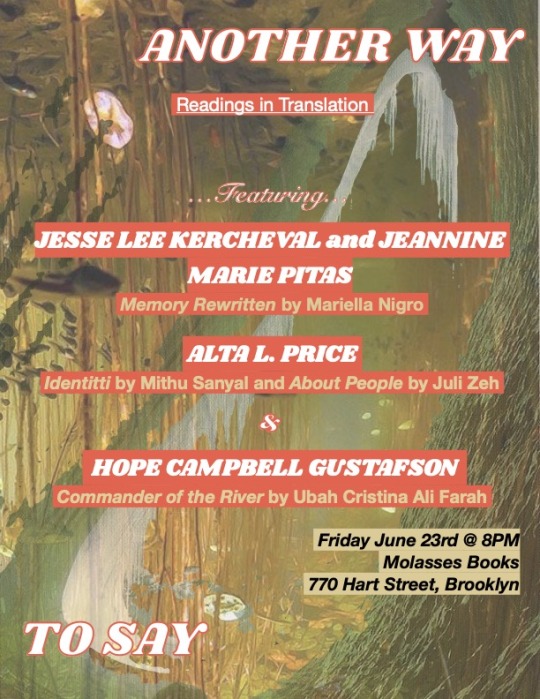

Friday, June 23rd, 8PM, at our beloved Molasses Books spot, AWTS is celebrating the recent and forthcoming releases of new work in translation from Spanish, Italian, and German,
~featuring~
Jesse Lee Kercheval and Jeannine Marie Pitas -- whose translations of Silvia Guerra wonderfully recall H.D.'s "Oread" -- will be presenting their co translation of Uruguayan poet Mariella Nigro's Memory Rewritten (White Pine Press); Alta L. Price will be reading from both Mithu Sanyal's Identitti (a highly recommended review by Susan Bernofsky for LARB can be found here) as well as a forthcoming translation from World Editions, About People by Juli Zeh; Hope Campbell Gustafson will read from Commander of the River by Ubah Cristina Ali Farah (Indiana University Press), a coming-of-age story that runs parallel to recurring exile, “The sound of the ocean, its roar, is the leitmotif of my childhood."
***
Jesse Lee Kercheval is a poet, writer, and translator, specializing in Uruguayan poetry. Her translations include Still Life with Defeats by Tatiana Oroño, also published by White Pine Press, Love Poems by Idea Vilariño and The Invisible Bridge: Selected Poems of Circe Maia. She is the co-translator, with Jeannine Marie Pitas, of A Sea at Dawn by Silvia Guerra. She is the Zona Gale Professor Emerita of English at the University of Wisconsin-Madison and the coeditor of the Wisconsin Poetry Series at the University of Wisconsin Press.
Jeannine Marie Pitas is the translator or cotranslator of ten books, most recently Uruguayan poet Mariella Nigro's Memory Rewritten (co-translated with Jesse Lee Kercheval and published by White Pine Press in 2023). Her most recent collection of poetry, Or/And, was published by Paraclete Press in 2023. She lives in Pittsburgh and teaches at Saint Vincent College.
Alta L. Price runs a publishing consultancy specialized in literature and nonfiction texts on art, architecture, design, and culture. Alta holds a BFA from the Rhode Island School of Design and an MFA from Hunter College. Recipient of the Gutekunst Prize, Alta’s translations from German and Italian have appeared on BBC Radio 4, Specimen, Words Without Borders, and elsewhere. Of the more than forty books Alta has translated, the latest are Mithu Sanyal’s novel Identitti and Giorgio Agamben’s Hölderlin’s Madness. Alta has translated two novels by Juli Zeh: New Year was a finalist for the 2022 PEN America Translation Prize as well as the Helen & Kurt Wolff Prize, and About People is forthcoming this fall.
Hope Campbell Gustafson translates from Italian, and works for the Civitella Ranieri Foundation. Her translation of Somali-Italian writer Ubah Cristina Ali Farah's novel Commander of the River, a project for which she received a Pen/Heim Translation Fund Grant, was just published as part of Indiana University Press' Global African Voices Series. In 2019, Fontanella Press published a collection of Marco Lodoli's vignettes about Rome in Hope's English, as Islands -- New Islands: a Vagabond Guide to Rome (Fontanella Press). She is currently working with a non-fiction book by Lorenzo Alunni titled Odysseus' Scars: Bodies and Borders in the Mediterranean.
0 notes
Text
Into The Bright Sky — Act IV: Revelations
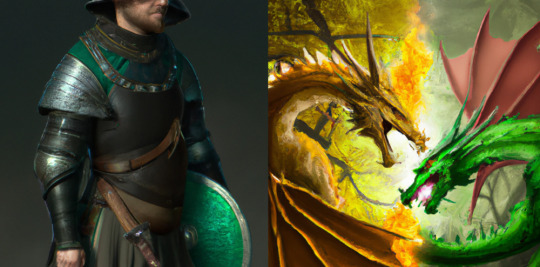
Act IV: Revelations
Autfaer Forest. The 30th of Dratma. Noon.
Fol Drakvrend Jihra
-Jahréim Greihart
Eigyys sat calmly.
To a dragon, three years felt shorter than a single human season, and the note he had received from his beloved son was a perfect opportunity to reminisce on the past.
Sitting silently in the glade where they’d first met, Eigyys allowed his thoughts to wander, alternating between wistful joy and fatherly concern.
Why a dark place, with a dark message in secret? He wondered.
What sorts of trouble might James be getting himself into, if stooping to secrets and shadows with his own father?
It was all quite unbecoming for a member of the Bright Sky… Though, Eigyys knew better than to reveal the note to any others. By ritual-law, his son’s life would be put under harsh surveillance if word of this meeting reached his kin.
As the noon chimes rang from Eigyys’ time-dial, James appeared from the forest shadows.
“Father… Thank you for coming.”
“What is the meaning of all this?”
“I… wish for a reckoning.”
“After three years… you now decide to break ritual-law? Explain.”
“I can’t… focus.” James sighed, shifting uncomfortably on the balls of his feet, “Not until the rift between us is repaired. I miss our talks. I miss… you.”
“J-… Son, the rift between us is only within your mind. I am proud of you, my son. And I always shall be. Of that you need no words or rituals to attest.” Eigyys assured, patting James’ shoulder lightly with his tail.
“Then… why?”
“The bonds of trust. The bonds of caring, of love. All more powerful than anything born of words, physical touch, or ritual. This lesson I tried for years to teach you, but perhaps our time apart was needed to get through that thick skull of yours.” He smiled, gently puffing out a halo of grey smoke.
James grinned at his father’s jest, ruefully nodding.
“What now, father?”
“ Abide by the code of the Bright Sky. Burn each law into your heart. Return to Heimlock. He is your Drakvrend. Until the gods allow, he and I shall never meet.”
“The gods allow? What do you mean?”
“A golden mount… Has a task from the gods. None may interfere. None. Under any circumstance.”
“Wait… I’d been told it was ritual-law we must remain separate.”
“And so it is. But your steady inability to focus on the ‘why’ of all things is troubling . Do you still doubt that I love you with all my heart?”
“But Heimlock said-”
A roar of rage pierced the sky from the west. Heimlock’s form came crashing through the trees like a thrashing juggernaut.
“Enough! No longer shall I bear this mockery!” He roared.
“Heimlock! In shadows you hide?” Eigyys gasped incredulously, “Have you no sacred honor? So carelessly do you break your oath to the gods!”
“Hypocrisy to its core.” Heimlock spat, his teeth bared menacingly, “You should not have met with James. My oath to the gods is now to slay you where you stand!”
“Heim, no! How did you know I was here? Talon…?” James cried out in disbelief.
“Do you think me a fool? I saw the moment you left you weren’t seeking comfort but action. Seeking a reckoning. I merely waited, praying you would change your mind and not take part in such foolishness… Or, that your father would have the sense not to show.”
Heimlock shivered, his eyes reflecting deep sorrow while a grin spread across his gaping maw.
“Now… All is lost. I am sorry, James. I’m oathbound to forces greater than I.”
Bellowing a mighty roar, Heimlock charged Eigyys, spewing out a sizzling ball of blue flame. Instantly Eigyys took to the skies, letting out an enormous cloud of crimson light, enveloping Heimlock in smoke and flames. Out of the inferno, Heimlock’s claws and fangs snaked out to strike, forcing Eigyys to return to earth.
“Stop! No!” James cried out desperately.
For a moment, Eigyys paused as if he’d heeded his son’s call. But in reality, it came from a peculiar change in his adve rsary.
“Deceiver!” Eigyys roared out in fury, slamming his foreclaws deep into the ground.
Heimlock’s scales now shone a dull copper, every inch of his form no longer bearing the unique luster and sparkle of gold.
“Copper!!! You dare deceive all Thunderborn?” Eigyys fumed, his eyes flashing in indignation, “And worse, you’ve stolen three years of observing my child’s growth!”
“Three years?” Heimlock snarled, whipping his spiked tail around in invitation, “What of the countless years lost for whelps of the tributes? Come, and we shall decide this in blood! Yours or mine!”
Smoke, fire, and earth erupted all around as the two dragons ferociously battled. James screamed, throwing his arms up into the Drakvrend sign of “ceasefire,” but they had become oblivious to his existence. A stray blast incinerated the ground beside him, forcing him to take cover under an outcropping of rock.
Stop, please stop…
In vain, the sad mantra repeated over and over in his mind.
As the combat rapidly approached conclusion, his father and Drakvend became possessed by thousands of years of strife, pain, and dragon history. Two titans faced off, each intending to rend the other to shreds.
James sensed the next strike would be the last. Whichever side won, he would be lost. With tears streaming from his eyes, he opened his mouth to scream one last protest, but all that emerged was a raspy wheeze of sorrow.
Powerless, he watched as his only two true friends and mentors in life flashed through the sky, colliding into an explosion of light, sparks, and flames.
Scales of emerald and copper erupted from the enormous impact, pelting James and knocking him unconscious.
The bright sky overhead burned like a blue-lit candle at midnight.
James yawned as he stood and stretched over his rucksack bed, camped at the mouth of the large cave. Gathering his things, he reviewed the past week of failed treasure hunts into Barratry Den.
It seemed he had had quite the streak of beginner’s luck the first few weeks on the job, successfully adding several relics to the treasuries of the Amity clans, keepers of the Outer Borders. They knew not of his past, and had blessedly accepted him without any demands or expectations.
As the days turned into months, more and more he felt that this was where he could forge a new path; a new destiny.
Just after he’d finished packing for the day’s expedition, he noticed from the corner of his eye an intense glimmering light. Glancing back to the campground, he saw it was coming from Alluin. The round-shield’s spotless face peeking out of his rucksack, seemed to be playfully reflecting the sun’s rays through patches of clouds drifting across the sky.
Above him, the tell-tale roar of a drake’s entreaty rang out from the heavens. Lifting his head nervously, James saw a full-blown thunder of whelps circling high above the clouds.
A familiar voice lightly penetrated his thoughts.
It is easier for humans to let go of the past, since there is such little of it.
“For a human… yes,” he muttered to himself, “But I am no longer fully human, nor am I fully Thunderborn…”
Uncertain of what to do next, James began to pace back and forth before the mouth of the cave, pondering whether a response was required or deserved.
Stopping to stand in full attention, he closed his eyes and took a deep breath.
For a dragon, it is much harder to give up the past. So much history. Too many painful memories.
Humans were blessed with a shorter life, granting a chance at happiness. A chance to move on. A chance to progress towards the future. To build a new future apart from the past.
…And that is what I shall practice doing for the time-being.
Farewell, old friend.
Taking one last deep breath, James opened his eyes, bracing himself for a day of adventure deep into Barratry Den.
Before taking his first steps into the darkness, James stopped, staring up at the tens of dragons playfully roaring and snapping at each other.
He wondered…

This is the extended unedited version of a short story I previously submitted on Vocal for a writer’s challenge by Christopher Paolini.
To see the edited to-fit-5000-words version of the story, click here:
***
BK’s responses will be delayed from November 18th-30th. He is roaming around Japan on vacation.
#beforeyoufall#bkjohnsen#BK#writingcommunity#bloggerlife#blog#writing#bloggingcommunity#writing community#spotify#bk#poets and writers#poetsandwriters#Spotify#writerslife#dragons#dragon#into the bright sky#into the sky#bright sky#eragon#vocal challenge#vocal
0 notes
Text
Last night I had a wonderful talk with Emma @maris.piper about the books we loved reading as children.
We have both kept our favorites.
I remembered my talk with you, Lou @the_sick_rose_ about our most cherished children's books and decided to take a photo of them. I definitely would love to acquire more. I love the illustrations of picture books.
So here are a few of them in Greek. (Part 1)
My favourite books were about animals, domestic and wild.
The first one is called "The adventures of Pusscat Wizzy Williams" and it's an adorable flap book about a stray cat who can't keep living in the streets and decided to go on quest to find his forever family. His resemblance to Flash is uncanny. It was published in 1993 by a Scottish publishing house. As you can see, Flash approves my taste.
The second one is called " Greyfriars Bobby", published in Great Britain by Andersen Press. The author and illustrator is Ruth Brown. I'm sure you are all familiar with the heartbreaking story of Bobby 🐶
Next, it's the picture book called " The Hunter", written by Paul Geraghty and published in Great Britain by Hutchinson Children's Books.
The illustrations are incredible and they evoke the fear and loneliness the baby elephant felt when the hunters killed his mother, as well as the love and connection blooming between the girl and the baby elephant .
Another beloved children's books series is "Can't you sleep little bear"?, written by Martin Waddell and illustrated by Barbara Firth. It was published in Great Britain by Walker Books.
The last book is called "Pauli, komm wieder heim"/ Where have you gone, Davy?, written by Brigitte Weninger, illustrated by Eve Tharlet and published by Neugebauer Verlag.
Part of the stories about Davy, an adorable and stubborn little rabbit.
The illustrations are magical.
I'm tagging a few friends! Share if you want a few of your beloved children's books. I'd love to see them 🌻✨
instagram
0 notes
Text
5 Psychic Ability Myths
From shepherds knocking stones into rabbit holes in 12th century Scotland into the 30 million golfers using 16,000 golf courses across the United States, golf is a long, long far. Perhaps the greatest changes at basketball for the beginner golfer have happened the past 20 years, with the technological advancements of the golf club and ball.
"Thou shalt not adhere to a multitude test and do evil" (Ex. 23:2). Ah, it can be an easy thing to float with the tide of popular opinion; but it takes much grace, diligently sought from God, to swim against the following. Yet that is what the heir of heaven is called on to do: to "Be not conformed to this world" (Rom. 12:2), to deny self, take in the cross, and follow a rejected God. How sorely does reason premium crack and reader need to have heed that word of your savior, "Behold, I come quickly; hold that fast which thou hast, that no man take thy crown" (Rev. 3:11). Oh that each of us may have the ability to truthfully say, "I have refrained my feet from EVERY evil way, that i might keep THY WORD" (Psa. 119:101).
The worshipped object belonging to the time was the Mother God. She was, of course, sunlight. Alone in the night sky during her travels workouts considered she was a virgin. But to make life she then required a mate and she was sent sacrifices of animals, birds, sea creatures and human being beings. These were all potentially able develop a life through her.
Not much will known within the history and Origin of Samba. Generally it is thought that the dance started in Africa where it was performed in by lovers. Many also believe that it emerged from another music called Choro. But it cannot be believed in actual once we do donrrrt you have evidence for that. In Samba two performances, dance and music they are both given in the same a chance.
If I've to go home at night and by reason of darkness, I cannot see the road and I take another direction, I shall never reach home and shall suffer all of the night. However there is light and the right path is taken, there in order to be no suffering and one will reach home without any let or hindrance. The same analogy ties in with life as well as have find out the path leading in our eternal home as the temporary sojourn on earth is only one part used us in the drama of life. Right as the identification light and portable body goes, one is put on the road. It can be a difficult way. It has been compared to walking on their own sharp edge of a sword.
In 1889, in Winterthur, an International Dog Show was placed. In the dog show, several types of Sennenhunds were shown. It wasn't until later in 1908 this kind of breed's categories were designed. During reason crack download of the Swiss Kennel Club, exercise routines, meal the famous dog expert Dr. Albert Heim who recognized the breed with short hair as the right breed. Health supplement him this breed was not too of Bernese Mountain Dogs, but a separate breed of Sennenhunds. Hints then that they christened these dogs considering 'Greater Swiss Mountain Dogs'.
Ol' reason crack free download is a beloved American figure, along with his papers and writings are pretty well-loved, too. Document from boehner from standard to his brother, discussing the chances of a Confederate invasion of Washington, N.C., sold for over $10,000.
1 note
·
View note
Photo

Fifty Great Classic Novels Under 200 Pages
We are now end of February, which is technically the shortest month, but is also the one that—for me, anyway—feels the longest. Especially this year, for all of the reasons that you already know. At this point, if you keep monthly reading goals, even vague ones, you may be looking for few a good, short novels to knock out in an afternoon or two. So now I must turn my attention to my favorite short classics—which represent the quickest and cheapest way, I can tell you in my salesman voice, to become “well-read.”
A few notes: This list will define “classic” as being originally published before 1970. Yes, these distinctions are somewhat arbitrary, but one has to draw the line somewhere (though I let myself fudge on translation dates). I did not differentiate between novels and novellas (as Steven Millhauser would tell you, the novella is not a form at all, but merely a length), but let’s be honest with ourselves: “The Dead” is a short story, and so is “The Metamorphosis.” Sorry! I limited myself to one book by each author, valiantly, I should say, because I was tempted to cheat (looking at you Jean Rhys).
Most importantly for our purposes here: lengths vary with editions, sometimes wildly. I did not include a book below unless I could find that it had been published at least once in fewer than 200 pages—which means that some excellent novels, despite coming tantalizingly close to the magic number, had to be left off for want of proof (see Mrs. Dalloway, Black No More, Slaughterhouse-Five, etc. etc. etc.). However, your personal edition might not exactly match the number I have listed here. Don’t worry: it’ll still be short.
Finally, as always: “best” lists are subjective, no ranking is definitive, and I’ve certainly forgotten, or never read, or run out of space for plenty of books and writers here. And admittedly, the annoying constraints of this list make it more heavily populated by white and male writers than I would have liked. Therefore, please add on at will in the comments. After all, these days, I’m always looking for something old to read.
Adolfo Bioy Casares, tr. Ruth L.C. Simms, The Invention of Morel (1940) : 103 pages
Both Jorge Luis Borges and Octavio Paz described this novel as perfect, and I admit I can’t find much fault with it either. It is technically about a fugitive whose stay on a mysterious island is disturbed by a gang of tourists, but actually it’s about the nature of reality and our relationship to it, told in the most hypnotizing, surrealist style. A good anti-beach read, if you plan that far ahead.
John Steinbeck, Of Mice and Men (1937) : 107 pages
Everybody’s gateway Steinbeck is surprisingly moving, even when you revisit it as an adult. Plus, if nothing else, it has given my household the extremely useful verb “to Lenny.”
George Orwell, Animal Farm (1945) : 112 pages
If we didn’t keep putting it on lists, how would future little children of America learn what an allegory is? This is a public service, you see.
Sir Arthur Conan Doyle, The Hound of the Baskervilles (1902) : 112 pages
A people-pleaser, in more ways than one: Sherlock Holmes, after all, had been dead for years when his creator finally bent to public demand (and more importantly, the demand of his wallet) and brought him back, in this satisfying and much-beloved tale of curses and hell-beasts and, of course, deductions.
James M. Cain, The Postman Always Rings Twice (1933) : 112 pages
A 20th century classic, and still one of the best, most important, and most interesting crime novels in the canon. Fun fact: Cain had originally wanted to call it Bar-B-Q.
Nella Larsen, Passing (1929) : 122 pages
One of the landmarks of the Harlem Renaissance, about not only race but also gender and class—not to mention self-invention, perception, capitalism, motherhood and friendship—made indelible by what Darryl Pinckney called “a deep fatalism at the core.”
Albert Camus, tr. Matthew Ward, The Stranger (1942) : 123 pages
I had a small obsession with this book as a moody teen, and I still think of it with extreme fondness. Is it the thinking person’s Catcher in the Rye? Who can say. But Camus himself put it this way, writing in 1955: “I summarized The Stranger a long time ago, with a remark I admit was highly paradoxical: “In our society any man who does not weep at his mother’s funeral runs the risk of being sentenced to death.” I only meant that the hero of my book is condemned because he does not play the game.”
Juan Rulfo, tr. Margaret Sayers Peden, Pedro Páramo (1955) : 128 pages
The strange, fragmented ghost story that famously paved the way for One Hundred Years of Solitude (according to Gabriel García Márquez himself), but is an enigmatic masterpiece in its own right.
Italo Calvino, tr. Archibald Colquhoun, The Cloven Viscount (1959) : 128 pages
This isn’t my favorite Calvino, but you know what they say: all Calvino is good Calvino (also, I forgot him on the contemporary list, so I’m making up for it slightly here). The companion volume to The Nonexistent Knight and The Baron in the Trees concerns a Viscount who is clocked by a cannonball and split into two halves: his good side and his bad side. They end up in a duel over their wife, of course—just like in that episode of Buffy. But turns out that double the Viscounts doesn’t translate to double the pages.
Kate Chopin, The Awakening (1899) : 128 pages
I know, I know, but honestly, this book, which is frequently taught in American schools as an example of early feminist literature, is still kind of edgy—more than 120 years later, and it’s still taboo for a woman to put herself and her own desires above her children. Whom among us has not wanted to smash a symbolic glass vase into the hearth?
Leo Tolstoy, tr. Richard Pevear and Larissa Volokhonsky, The Death of Ivan Ilyich (1886) : 128 pages
Another classic—Tolstoy can do it all, long and short—particularly beloved by the famously difficult-to-impress Nabokov, who described it as “Tolstoy’s most artistic, most perfect, and most sophisticated achievement,” and explained the thrust of it this way: “The Tolstoyan formula is: Ivan lived a bad life and since the bad life is nothing but the death of the soul, then Ivan lived a living death; and since beyond death is God’s living light, then Ivan died into a new life—Life with a capital L.”
Richard Brautigan, In Watermelon Sugar (1968) : 138 pages
Brautigan’s wacky post-apocalyptic novel concerns a bunch of people living in a commune called iDEATH. (Which, um, relatable.) The landscape is groovy and the tigers do math, and the titular watermelon sugar seems to be the raw material for everything from homes to clothes. “Wherever you are, we must do the best we can. It is so far to travel, and we have nothing here to travel, except watermelon sugar. I hope this works out.” It’s all nonsense, of course, but it feels so good.
James Weldon Johnson, The Autobiography of an Ex-Colored Man (1912) : 140 pages
Another early novel on the subject of passing—originally published in 1912, then again under Johnson’s name in 1927—this one presented as an “autobiography” written by a Black man living as white, but uneasily, considering himself a failure, feeling until the end the grief of giving up his heritage and all the pain and joy that came with it.
Thomas Mann, tr. Michael Henry Heim, Death in Venice (1912) : 142 pages
What it says on the tin—a story as doomed as Venice itself, but also a queer and philosophical mini-masterpiece. The year before the book’s publication, Mann wrote to a friend: “I am in the midst of work: a really strange thing I brought with me from Venice, a novella, serious and pure in tone, concerning a case of pederasty in an aging artist. You say, ‘Hum, hum!’ but it is quite respectable.” Indeed.
Shirley Jackson, We Have Always Lived in the Castle (1962) : 146 pages
If you’re reading this space, you probably already know how much we love this book at Literary Hub. After that excellent opening paragraph, it only gets better.
Christopher Isherwood, A Single Man (1964) : 152 pages
Isherwood’s miniature, jewel-like masterpiece takes place over a single day in the life of a middle-aged English expat (who shares a few qualities with Isherwood himself), a professor living uneasily in California after the unexpected death of his partner. An utterly absorbing and deeply pleasurable novel.
Fyodor Dostoevsky, tr. Richard Pevear and Larissa Volokhonsky, Notes from Underground (1864) : 154 pages
Probably the best rant ever passed off as literature. Dostoevsky's first masterpiece has been wildly influential in the development of existential and dystopian storytelling of all kinds, not to mention in the development of my own high school misanthropy. Maybe yours, too? “It was all from ENNUI, gentlemen, all from ENNUI; inertia overcame me . . .” Actually, now I’m thinking that it might be a good book to re-read in pandemic isolation.
Anna Kavan, Ice (1967) : 158 pages
The narrator of this strange and terrifying novel obsessively pursues a young woman through an icy apocalypse. You might call it a fever dream if it didn’t feel so . . . cold. Reading it, wrote Jon Michaud on its 50th anniversary, is “a disorienting and at times emotionally draining experience, not least because, these days, one might become convinced that Kavan had seen the future.” Help.
Jean Toomer, Cane (1923) : 158 pages
Toomer’s experimental, multi-disciplinary novel, now a modernist classic, is presented as a series of vignettes, poems, and swaths of dialogue—but to be honest, all of it reads like poetry. Though its initial reception was uncertain, it has become one of the most iconic and influential works of 1920s American literature.
J.G. Ballard, The Drowned World (1962) : 158 pages
Only in a Ballard novel can climate change make you actually become insane—and only a Ballard novel could still feel so sticky and hot in my brain, years after I read it in a single afternoon.
Knut Hamsun, tr. Sverre Lyngstad, Hunger (1890) : 158 pages
The Nobel Prize winner’s first novel is, as Hamsun himself put it, “an attempt to describe the strange, peculiar life of the mind, the mysteries of the nerves in a starving body.” An modernist psychological horror novel that is notoriously difficult, despite its length, but also notoriously worth it.
James Baldwin, Giovanni’s Room (1956) : 159 pages
Still my favorite Baldwin, and one of the most convincing love stories of any kind ever written, about which there is too much to say: it is a must-read among must-reads.
Willa Cather, O Pioneers! (1913) : 159 pages
A mythic, proto-feminist frontier novel about a young Swedish immigrant making a home for herself in Nebraska, with an unbearably cool and modern title (in my opinion).
Françoise Sagan, tr. Irene Ash, Bonjour Tristesse (1955) : 160 pages
Sagan’s famously scandalous novel of youthful hedonism, published (also famously) when Sagan was just 19 herself, is much more psychologically nuanced than widely credited. As Rachel Cusk wrote, it is not just a sexy French novel, but also “a masterly portrait that can be read as a critique of family life, the treatment of children and the psychic consequences of different forms of upbringing.” It is a novel concerned not only with morals or their lack, but with the very nature of morality itself.
Herman Melville, Billy Budd, Sailor (1924) : 160 pages
Bartleby may be more iconic (and more fun), but Billy Budd is operating on a grander scale, unfinished as it may be.
Thomas Pynchon, The Crying of Lot 49 (1966) : 160 pages
Everyone’s gateway to Pynchon, and also everyone’s gateway to slapstick postmodernism. Either you love it or you hate it!
Franz Kafka, tr. Willa and Edwin Muir, The Trial (1925) : 160 pages
Required reading for anyone who uses the term “Kafkaesque”—but don’t forget that Kafka himself would burst out laughing when he read bits of the novel out loud to his friends. Do with that what you will.
Kenzaburo Oe, tr. John Nathan, A Personal Matter (1968) : 165 pages
Whew. This book is a lot: absolutely gorgeous and supremely painful, and probably the Nobel Prize winner’s most important.
Djuna Barnes, Nightwood (1936) : 170 pages
In his preface to the first edition, T.S. Eliot praised “the great achievement of a style, the beauty of phrasing, the brilliance of wit and characterisation, and a quality of horror and doom very nearly related to that of Elizabethan tragedy.” It is also a glittering modernist masterpiece, and one of the first novels of the 20th century to explicitly portray a lesbian relationship.
Yasunari Kawabata, tr. Edward G. Seidensticker, Snow Country (1937) : 175 pages
A story of doomed love spun out in a series of indelible, frozen images—both beautiful and essentially suspicious of beauty—by a Nobel Prize winner.
Jean Rhys, Wide Sargasso Sea (1966) : 176 pages
This novel, Rhys’s famous riposte to one of the worst love interests in literary history, tells the story of Mr. Rochester from the point of view of the “madwoman in the attic.” See also: Good Morning, Midnight (1939), which is claustrophobic, miserable, pointless, and damn fine reading.
George Eliot, Silas Marner (1861) : 176 pages
Like Middlemarch, Silas Marner is exquisitely written and ecstatically boring. Unlike Middlemarch, it is quite short.
Muriel Spark, The Girls of Slender Means (1963) : 176 pages
The girls of Spark’s novel live in the May of Teck Club, disturbed but not destroyed by WWII—both the Club, that is, and the girls. “Their slenderness lies not so much in their means,” Carol Shields wrote in an appreciation of the book, “as in their half-perceived notions about what their lives will become and their overestimation of their power in the world. They are fearless and frightened at the same time, as only the very young can be, and they are as heartless in spirit as they are merry in mode.” Can’t go wrong with Muriel Spark.
Robert Walser, tr. Christopher Middleton, Jakob von Gunten (1969) : 176 pages
Walser is a writer’s writer, a painfully underrated genius; this novel, in which a privileged youth runs off to enroll at a surrealist school for servants, may be his best.
Truman Capote, Breakfast at Tiffany’s (1958) : 179 pages
Read for proof that Holly Golightly was meant to be a Marilyn.
Chinua Achebe, Things Fall Apart (1958) : 181 pages
A powerful, clear-eyed, and haunting novel, which at the time of its publication was transgressive in its centering of African characters in all their humanity and complexity, and which paved the way for thousands of writers all over the world in the years to follow.
Leonard Gardner, Fat City (1969) : 183 pages
Universally acknowledged as the best boxing novel ever written, but so much more than that: at its core, it’s a masterpiece about that secret likelihood of life, if not of literature: never achieving your dreams.
N. Scott Momaday, House Made of Dawn (1968) : 185 pages
House Made of Dawn, Momaday’s first novel, was awarded the Pulitzer Prize and is often credited with ushering in the Native American Renaissance. Intricate, romantic, and lush, it is at its core about the creaking dissonance of two incompatible worlds existing in the same place (both literally and metaphysically) at the same time.
Chester Himes, If He Hollers Let Him Go (1945) : 186 pages
Himes’ first novel spans four days in the life of a Californian named Bob Jones, whose every step is dogged by racism. Walter Mosely called Himes, who is also renowned for his detective fiction, a “quirky American genius,” and also “one of the most important American writers of the 20th century.” If He Hollers Let Him Go, while not technically a detective story, is “firmly located in the same Los Angeles noir tradition as The Big Sleep and Devil in a Blue Dress,” Nathan Jefferson has written. “Himes takes the familiar mechanics of these novels—drinking, driving from one end of Los Angeles to another in search of answers, a life under constant threats of danger—and filters them through the lens of a black man lacking any agency and control over his own life, producing something darker and more oppressive than the traditional pulp detective’s story.”
F. Scott Fitzgerald, The Great Gatsby (1925) : 189 pages
All my life I have wanted to scoff at The Great Gatsby. Usually, things that are universally adored are bad, or at least mediocre. But every time I reread it, I remember: impossibly, annoyingly, it is as good as they say.
Vladimir Nabokov, Pnin (1957) : 190 pages
Still one of my favorite campus novels, and short enough to read in between classes.
Charles Portis, Norwood (1966) : 190 pages
Portis has gotten a lot of (well-deserved) attention in recent years for True Grit, but his first novel, Norwood, is almost as good, a comic masterpiece about a young man traipsing across a surreal America to lay his hands on $70.
Philip K. Dick, Ubik (1969) : 191 pages
Do Androids Dream of Electric Sheep? and A Scanner Darkly have more mainstream name recognition (thank you Hollywood) but Ubik is Dick’s masterpiece, filled to the brim with psychics and anti-psis, dead wives half-saved in cold-pac, and disruptions to time and reality that can be countered by an aerosol you get at the drugstore. Sometimes, anyway.
Clarice Lispector, tr. Alison Entrekin, Near to the Wild Heart (1943) : 192 pages
Lispector’s debut novel, first published in Brazil when she was only 19, is still my favorite of hers: fearless, sharp-edged, and brilliant, a window into one of the most interesting narrators in literature.
Anthony Burgess, A Clockwork Orange (1962) : 192 pages
This novel is probably more famous these days for the Kubrick film, but despite the often gruesome content, the original text is worth a read for the language alone.
Barbara Comyns, Who Was Changed and Who Was Dead (1954) : 193 pages
Comyns is a criminally under-read genius, though she’s been getting at least a small taste of the attention she deserves in recent years due to reissues by NYRB and Dorothy. This one is my favorite, permeated, as Brian Evenson puts it in the introduction of my copy, with marvelousness, “a kind of hybrid of the pastoral and the naturalistic, an idyllic text about what it’s like to grow up next to a river, a text that also just happens to contain some pretty shocking and sad disasters.” Which is putting it rather mildly indeed.
Zora Neale Hurston, Their Eyes Were Watching God (1937) : 194 pages
In 194 pages, Janie goes through more husbands than most literary heroines can manage in twice as many (and finds herself in equally short order).
Edith Wharton, Ethan Frome (1911) : 195 pages
To be honest with you, though it has been variously hailed as a masterpiece, I find Ethan Frome to be lesser Wharton—but even lesser Wharton is better than a lot of people’s best.
Joan Lindsay, Picnic at Hanging Rock (1967) : 198 pages
The mood this novel—of disappeared teens and Australian landscape and uncertainty—lingers much longer than the actual reading time.
Angela Carter, The Magic Toyshop (1967) : 200 pages
“The summer she was fifteen,” Carter’s second novel begins, “Melanie discovered she was made of flesh and blood.” It is that year that she is uprooted from her home in London to the wilds of America, and it is that year she comes to term with herself. “It is often the magical, fabular aspects of Carter’s stories that people focus on, but in The Magic Toyshop I responded to the way she blended this with a clear-eyed realism about what it was to live in a female body,” Evie Wyld wrote in her ode to this novel. “In a novel so brilliantly conjured from splayed toothbrush heads, mustard-and-cress sandwiches and prawn shells, bread loaves and cutlery, brickwork and yellow household soap, the female body is both one more familiar object and at the same time something strange and troubling.”
Daily inspiration. Discover more photos at http://justforbooks.tumblr.com
30 notes
·
View notes